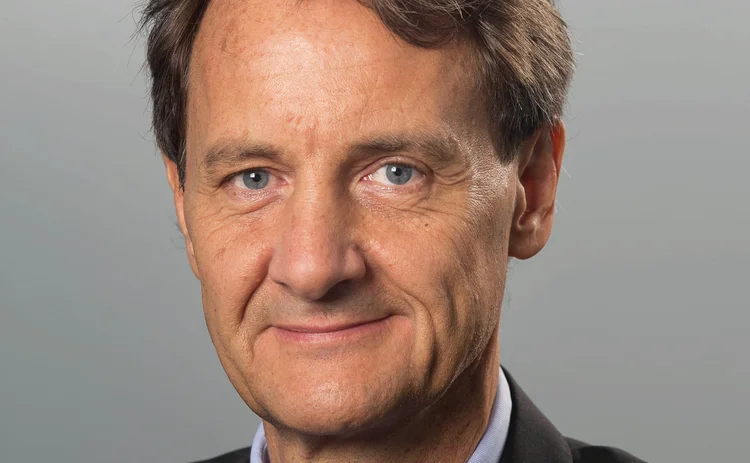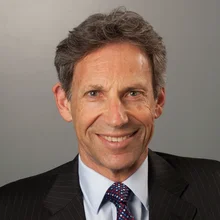
Global markets award: HSBC
The bank is a leader in green finance and helped clients navigate the low-rate environment

For several years now, the financial sector has been gaining momentum as a driver of a green transition. But the past year has seen rapid change, particularly for central banks. Milestones include the creation of a green investment handbook by the Network for Greening the Financial System and the launch of the Bank for International Settlements’ (BIS) green bond fund for central banks.
At the same time, reserve managers have had to continue navigating a low-interest-rate environment, as the US Federal Reserve reverses its tightening policy, and continue facing up to the challenges posed by the changing structure of financial markets in the wake of the global crisis.
On both fronts, HSBC has proven its credentials as a trusted partner to central banks, with many clients saying it goes to greater lengths than the competition to maintain close relationships. The bank was an early mover on green investments, putting it in a good position to ride the wave of demand for green assets in the last few years. It is also deeply involved with global markets, and therefore has the breadth of knowledge to be able to offer tailored solutions to new problems. One example has been a growing use of bond taps in the past year.
Going green
HSBC’s global head of central banks, Christian Déséglise, also heads up sustainable finance for global banking and markets, making him a rare financier with a foot in both worlds – or a “double heart”, as he puts it. Déséglise’s team played a part in the design of the green bond fund at the BIS, providing comprehensive information and suggestions as far back as 2017. The BIS had already been a trailblazer for central banks in Asian bond markets and renminbi, so why not push the climate agenda in the public sector?
Things really took off in the past year. The green fund launched in September, just as many central banks were preparing to invest parts of their portfolio in green assets. The Reserve Bank of New Zealand, Bank of Spain and Bank of Portugal have gone on the record as investors in the fund – more than 20 others are also thought to be participating.
Interest in the sector has been growing rapidly over the last 12 months, with sovereign wealth funds, with multilateral institutions, and with central banks. It’s been busy
Christian Déséglise, HSBC
HSBC has a strong green platform of its own to work from. In the first half of 2019, it was ranked first worldwide for the volume of its green bond underwriting, according to the Climate Bonds Initiative. It has also seen a notable increase in its green central bank clients during the past year. Overall, 32 central banks participated in HSBC’s green, social and sustainability bonds in the year to October 2019, up from 28 in 2018. Volumes rose 42% over the same period.
“Interest in the sector has been growing rapidly over the last 12 months, with sovereign wealth funds, with multilateral institutions, and with central banks,” says Déséglise. “It’s been busy.”

Clients speak highly of HSBC’s research capabilities. One European central banker, whose institution has made green investments, described HSBC’s team as “very knowledgeable” on environmental, social and governance investing: “We are going deeper into the subject – and since it is a new subject, it is very useful to have counterparties that have good research on that topic.”
“Research is a great backbone for us, and supports our interactions with clients at a senior level,” notes Bernard Altschuler, HSBC’s head of coverage for central banks in Europe, the Middle East and Africa.
Tapping new tactics
The post-crisis landscape continues to force central banks – like other investors – to hunt for yield. The hunt is complicated by regulatory changes that have led commercial bank counterparties to be less able to hold inventory.
One way around this is to use bond taps. The past year has seen an increase in taps and private placements in the sovereign, supranational and agency space that HSBC has arranged for central bank clients. A central bank may not have cash available at the time of issue or the spreads may not be favourable, so being able to use taps to access particular bond issues at the right time can be a big benefit.
“Timing is key,” says Ralph Riachi, a managing director for institutional sales at HSBC. “Sometimes, spreads are appealing, but there’s no new issue coming. It’s very tactical, and it depends on levels throughout the year.”
By arranging taps, HSBC has been able to tailor transactions to central banks’ specific needs, keeping costs low and working within the constraints of the balance sheet. It has also been well placed to support central banks in other aspects of their search for yield. The bank’s global market coverage, strong research and expertise in local markets allowed it to help several clients diversify their currency holdings and expand activity in gold.
Clients say HSBC’s depth of knowledge, its worldwide reach, and the lengths its team goes to in maintaining close ties with central banks set it apart as a trusted global counterparty.
The Central Banking Awards were written by Christopher Jeffery, Daniel Hinge, Dan Hardie, Rachael King, Victor Mendez-Barreira, Alice Shen and William Towning
Only users who have a paid subscription or are part of a corporate subscription are able to print or copy content.
To access these options, along with all other subscription benefits, please contact info@centralbanking.com or view our subscription options here: www.centralbanking.com/subscriptions
You are currently unable to print this content. Please contact info@centralbanking.com to find out more.
You are currently unable to copy this content. Please contact info@centralbanking.com to find out more.
Copyright Infopro Digital Limited. All rights reserved.
As outlined in our terms and conditions, https://www.infopro-digital.com/terms-and-conditions/subscriptions/ (point 2.4), printing is limited to a single copy.
If you would like to purchase additional rights please email info@centralbanking.com
Copyright Infopro Digital Limited. All rights reserved.
You may share this content using our article tools. As outlined in our terms and conditions, https://www.infopro-digital.com/terms-and-conditions/subscriptions/ (clause 2.4), an Authorised User may only make one copy of the materials for their own personal use. You must also comply with the restrictions in clause 2.5.
If you would like to purchase additional rights please email info@centralbanking.com




